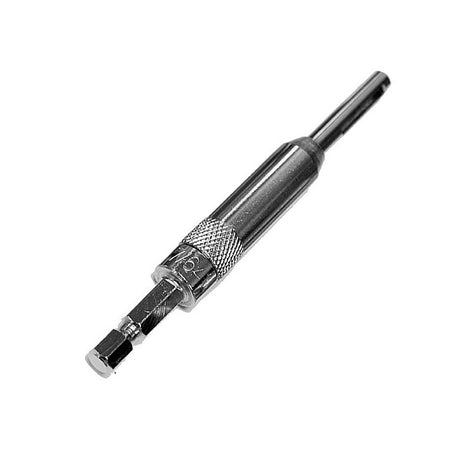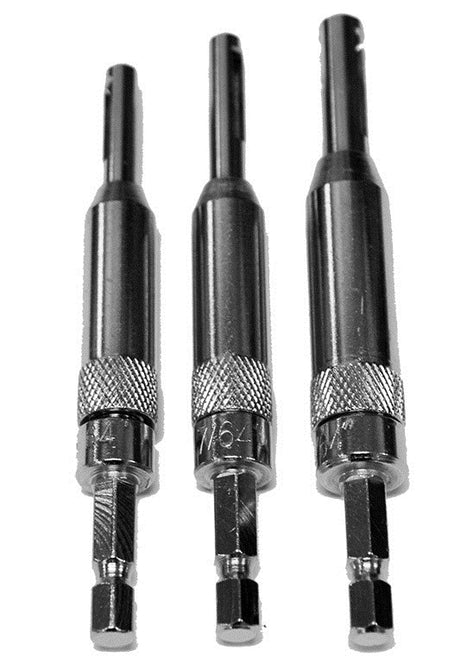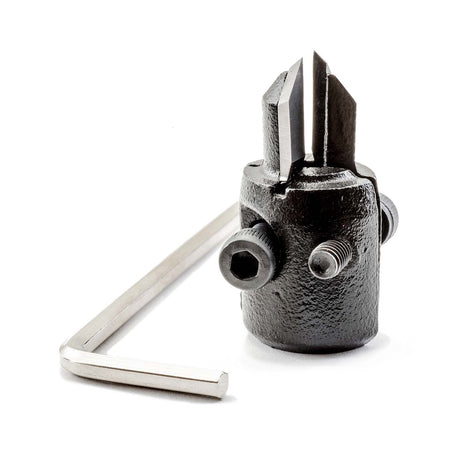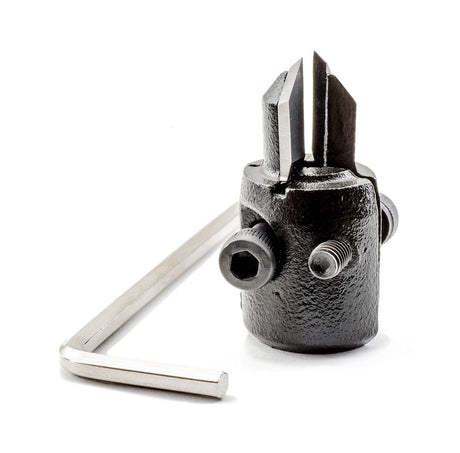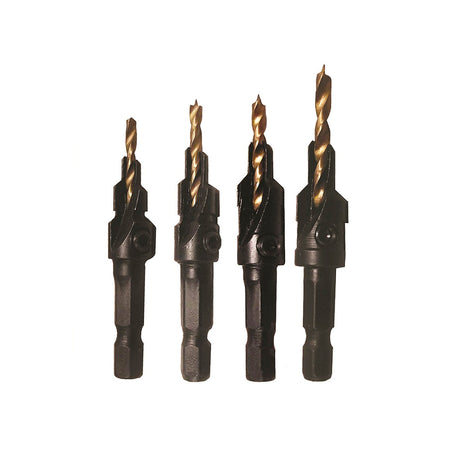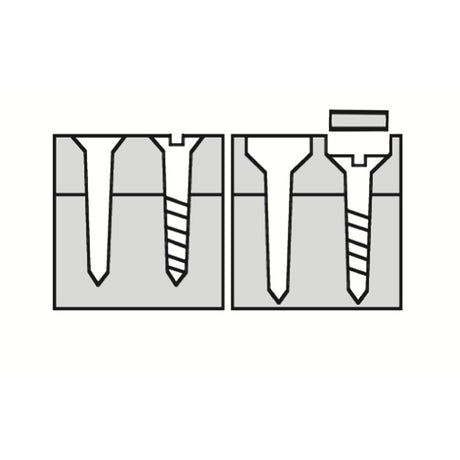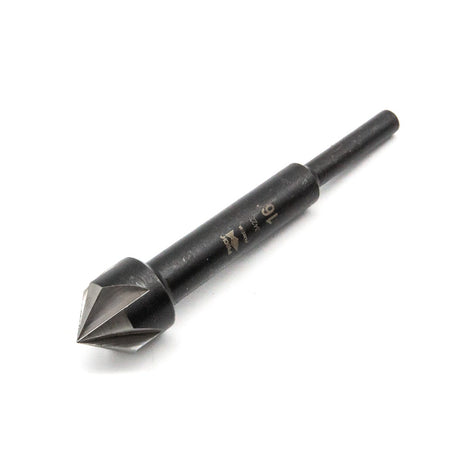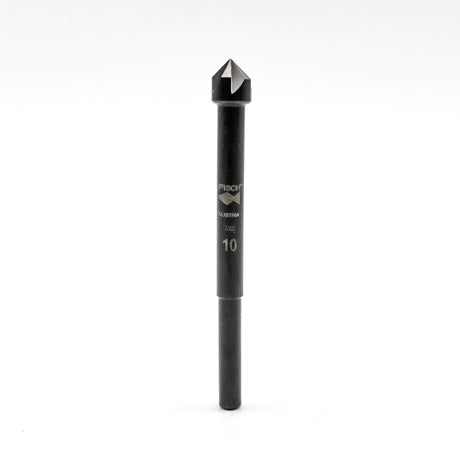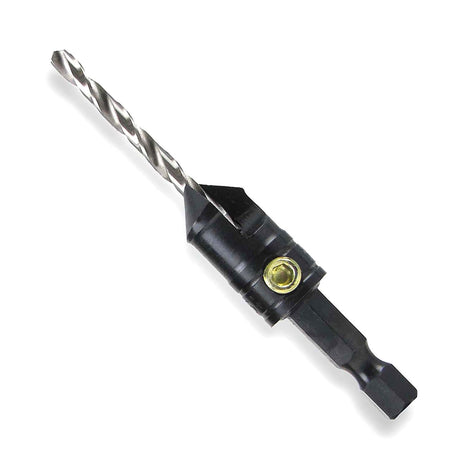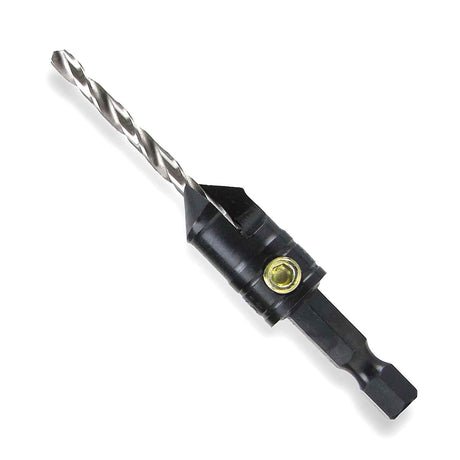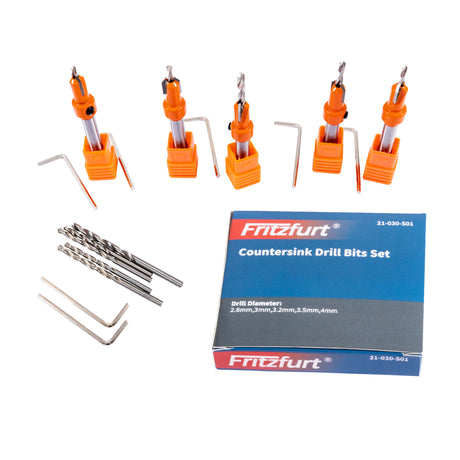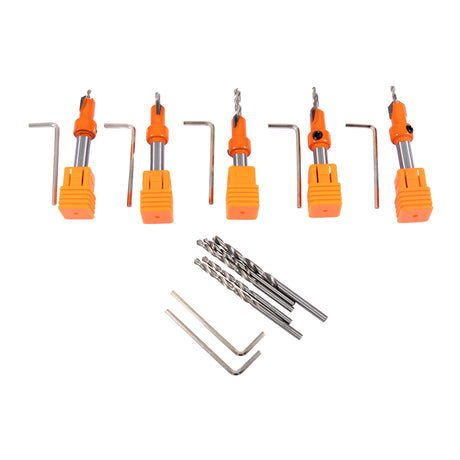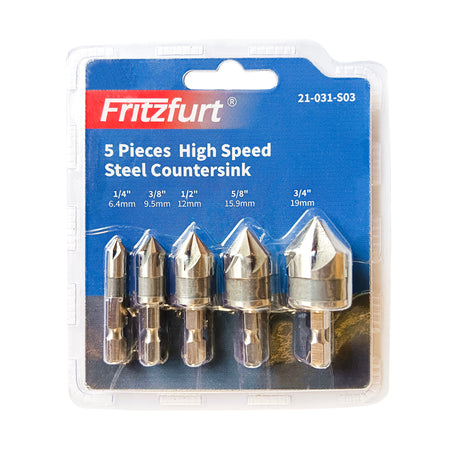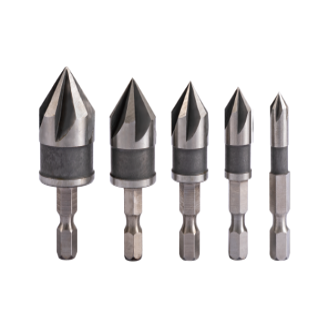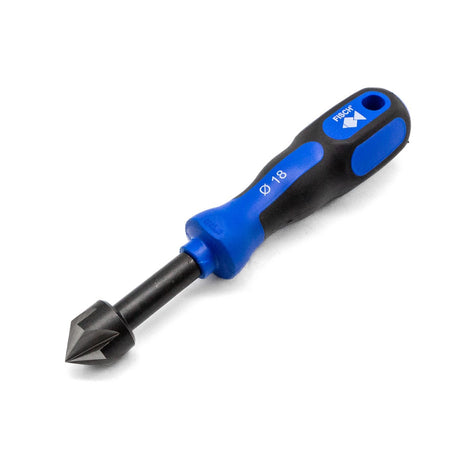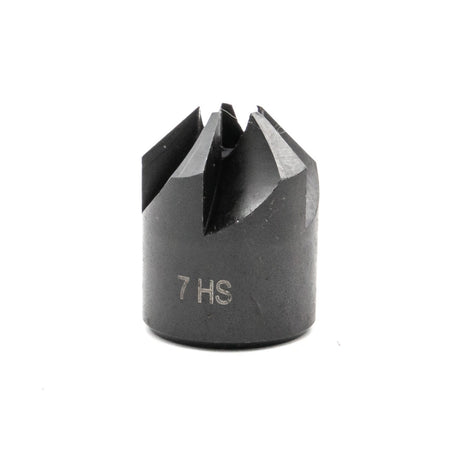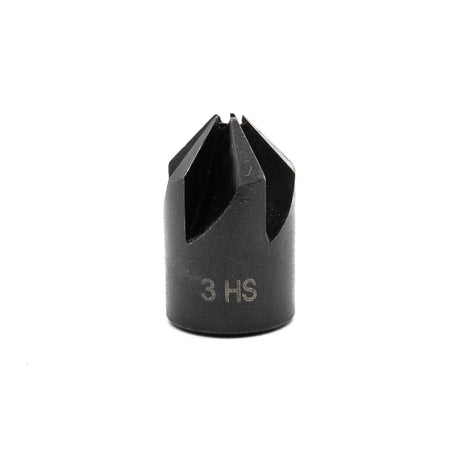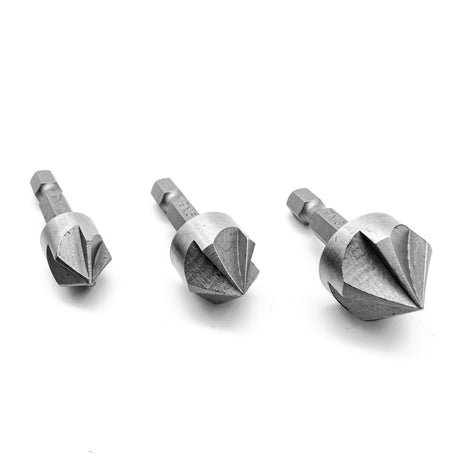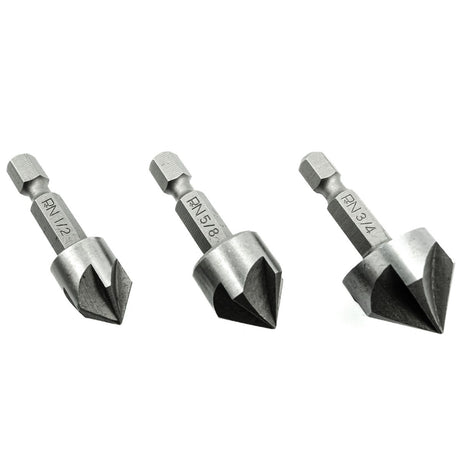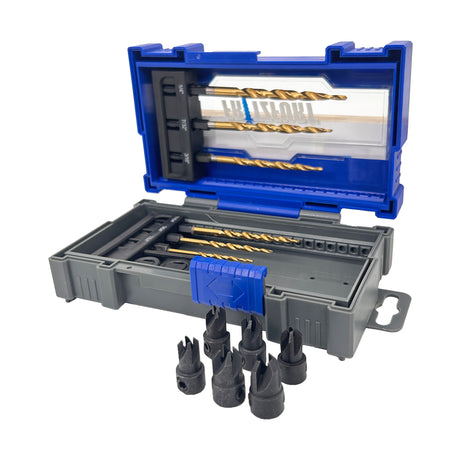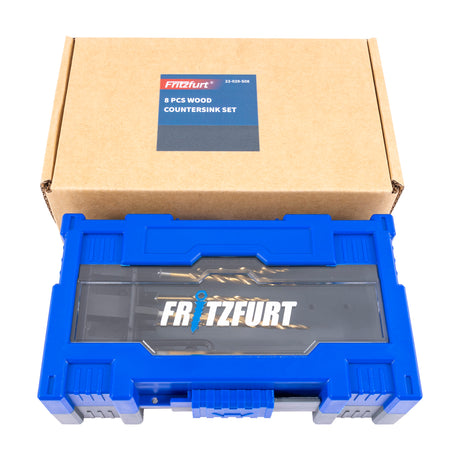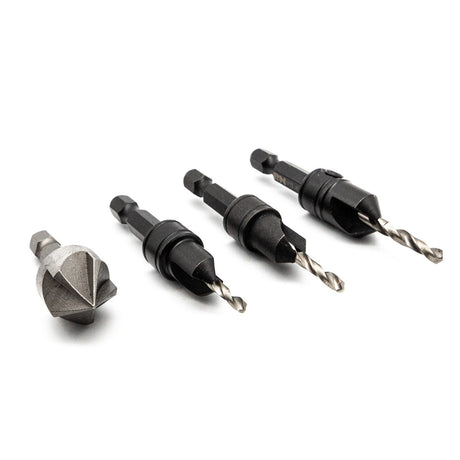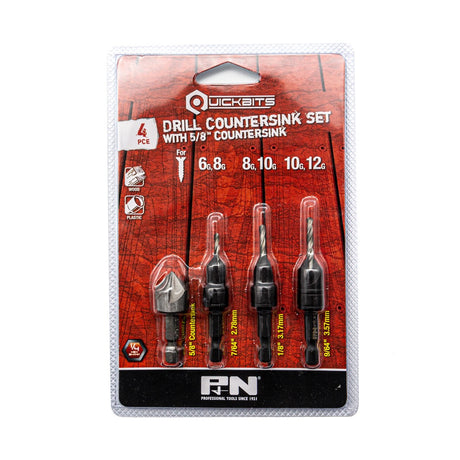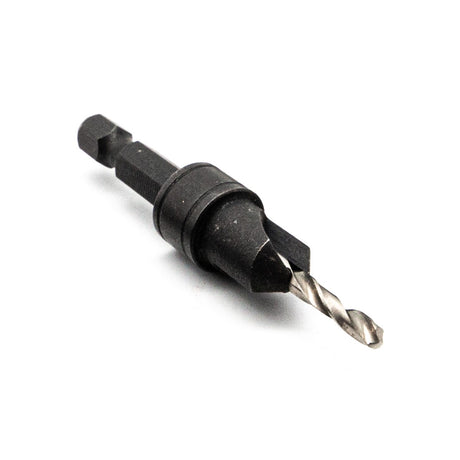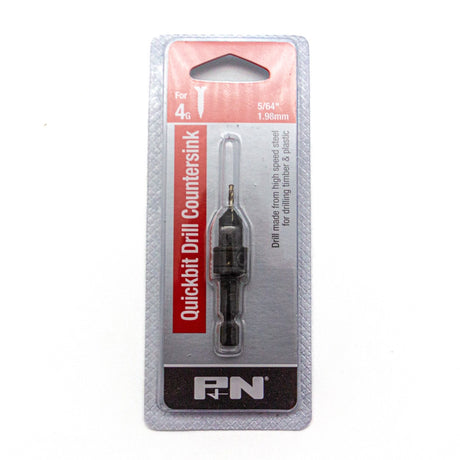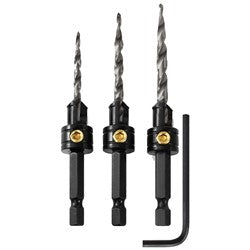Milescraft
Milescraft Hinge Bit Set of Three Vix Bits
$20.50$23.90Unit price /UnavailableVery low stock (3 units)Torquata
Torquata Countersink Adjustable Depth Tungsten Carbide Drill Bit
$19.90Unit price /UnavailableMilescraft
Milescraft Counter BIt Set of Four Countersink Counterbore Drill Bits
$18.50$21.90Unit price /UnavailableIn stockFritzfurt
Fritzfurt Countersink Drill Bits for Timber Set of 5
$17.90Unit price /UnavailableIn stockNarex
Narex Handheld Countersink Tool 130mm Long Maximum 10mm Holes
$29.90Unit price /UnavailableIn stockFritzfurt
Fritzfurt Rose Head Countersink Bits Set of 5 HSS
$24.90Unit price /UnavailableIn stockP & N
P & N Quickbit Impact Countersinks Rose Head Set of Three CR-V 1/4in Hex Shank
$41.50Unit price /UnavailableIn stockFritzfurt
Fritzfurt Tapered Countersink Drill Bits for Timber Set of 8 with Stop Collars
$34.90Unit price /UnavailableIn stockSnappy
Snappy Set of 3 Self-Centering Hinge Screw Pilot Vix Bit 1/4in Hex Shank
$107.90Unit price /UnavailableLow stock (2 units)P & N
P & N Quickbit Drill Bit and Countersinks Four Piece Set 1/4in Hex Shank
$67.50Unit price /UnavailableIn stock
Enhancing Your Woodworking with Countersink Drill Bits
Countersink drill bits are essential tools for any woodworker aiming to achieve professional-looking finishes on their projects. These bits are specifically designed to create a conical hole that allows screws to sit flush with or below the surface of the material. This not only improves the aesthetic of the final product but also helps prevent wood splitting and ensures a stronger, more secure join.
Using countersink drill bits is particularly advantageous when working with hardwoods or when a clean, smooth surface is required for finishing, such as when applying paint or varnish. These bits come in various sizes and angles, allowing you to match the countersink to the specific screws being used. Some countersink bits even come with adjustable depth stops, giving you greater control over the depth of the hole, which is crucial for achieving consistent results across multiple screws.
When selecting a countersink drill bit, it's important to consider the material it is made from. High-speed steel (HSS) bits are durable and suitable for most woodworking tasks, while carbide-tipped bits offer superior performance and longevity, especially when working with tougher materials. Additionally, some countersink bits are combined with a pilot drill, enabling you to drill the pilot hole and countersink in one step, saving time and ensuring perfect alignment.
To ensure the best results, regularly inspect your countersink drill bits for wear and sharpness. Dull bits can cause tear-out and reduce the quality of your work. Sharpening or replacing worn bits will help maintain clean, precise cuts. Proper storage and handling will also extend the life of your bits, ensuring they remain a reliable part of your woodworking toolkit.
FAQs
What is the purpose of a countersink drill bit?
A countersink drill bit is used to create a conical hole that allows the head of a screw to sit flush with or below the surface of the material. This results in a cleaner finish and prevents the screw from protruding.
How do I choose the right countersink bit for my project?
Select a countersink bit based on the size and type of screws you are using, as well as the material you are working with. Consider bits made from high-speed steel for general use, or carbide-tipped bits for tougher materials.
Can I use countersink drill bits on metal?
Yes, some countersink drill bits are designed for use on metal, however, it's important to ensure the bit is suitable for the specific type of metal you're working with.
What angle should my countersink bit be?
The most common countersink angle is 82 degrees, which is standard for most screws. However, bits with different angles are available to match specific screw head designs, so choose the angle that best suits your screws.
How do I maintain my countersink drill bits?
Regularly check your countersink drill bits for sharpness and wear. Sharpen them as needed to maintain clean cuts, and store them properly to prevent damage. Replace any bits that are chipped or excessively worn.
Can countersink bits be used for both drilling and countersinking?
Yes, many countersink bits come with an integrated pilot drill, allowing you to drill the pilot hole and countersink in one step. This combination bit ensures perfect alignment and saves time during your project.
What are the benefits of using a countersink drill bit?
Using a countersink drill bit improves the appearance of your work by allowing screws to sit flush with the surface. It also reduces the risk of splitting the wood and provides a more secure, durable join.

